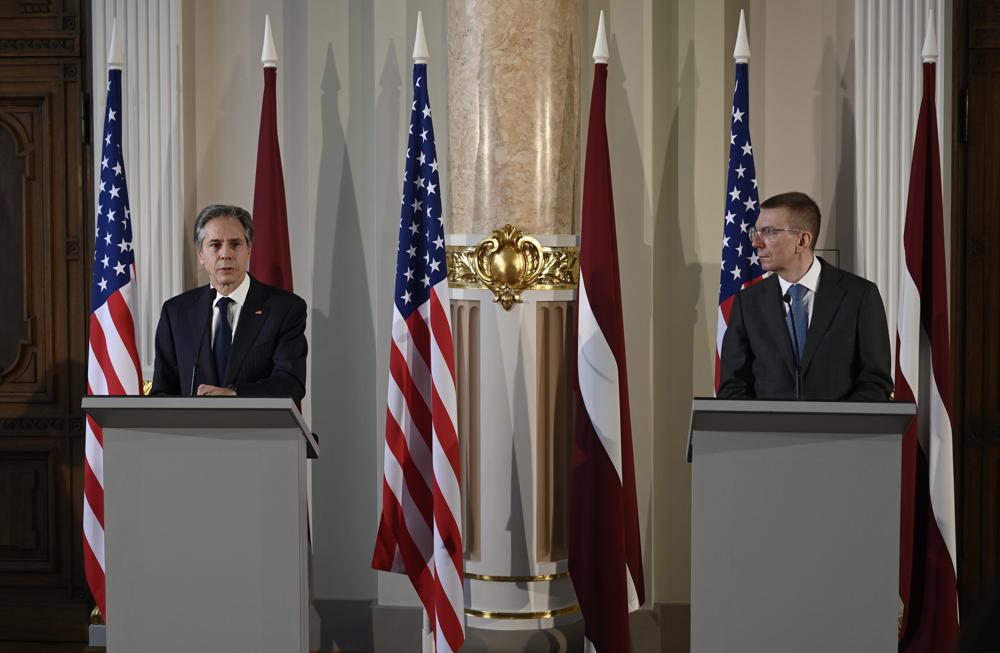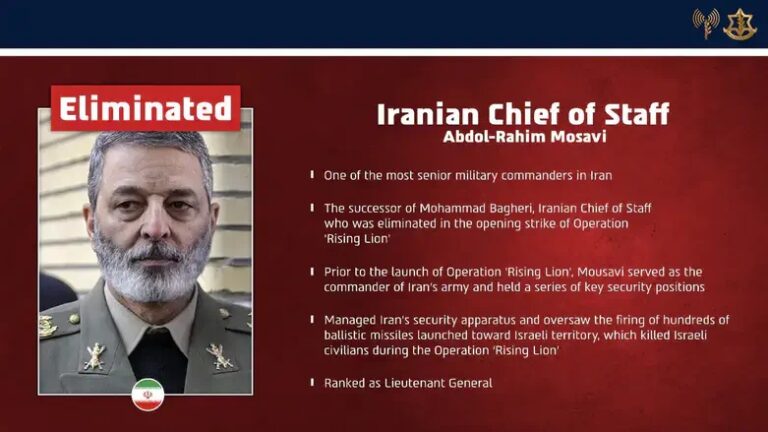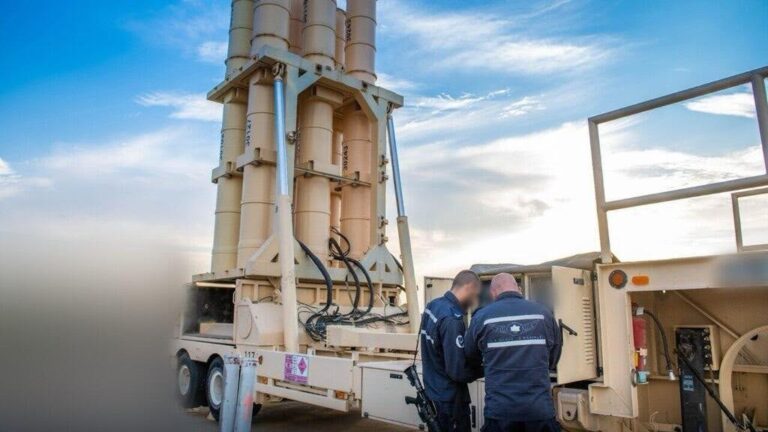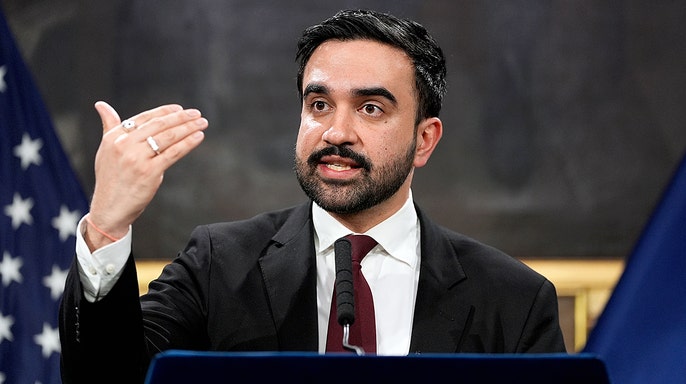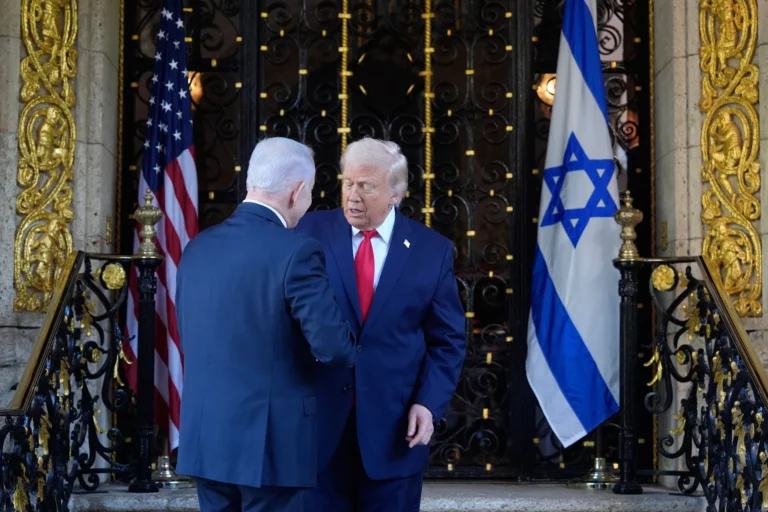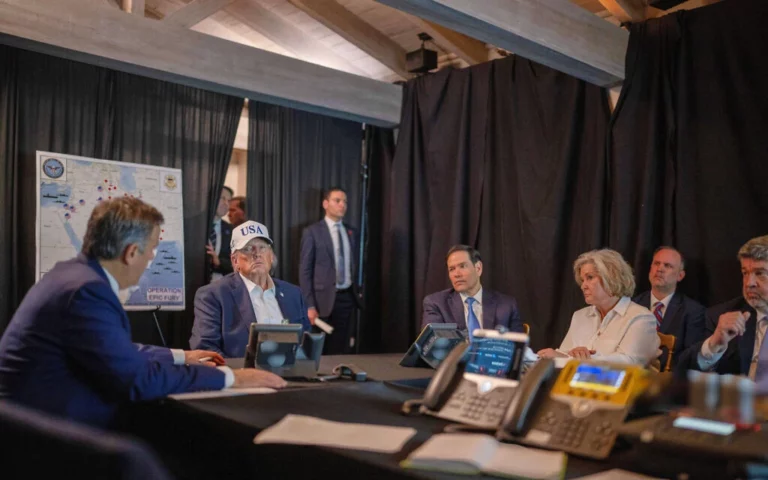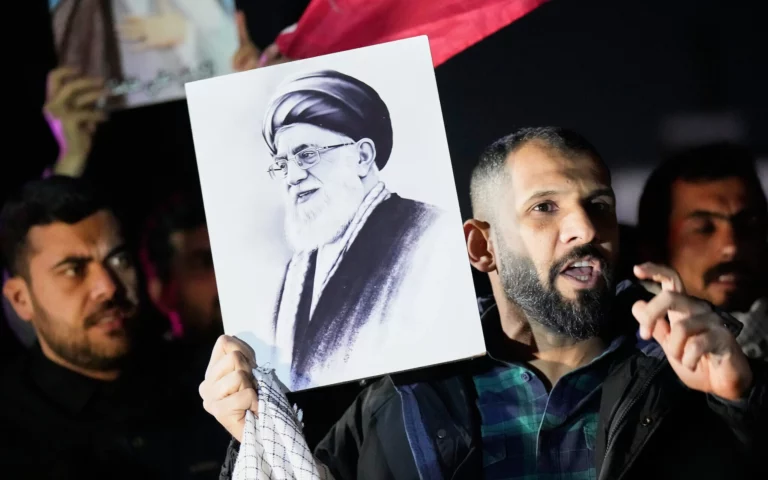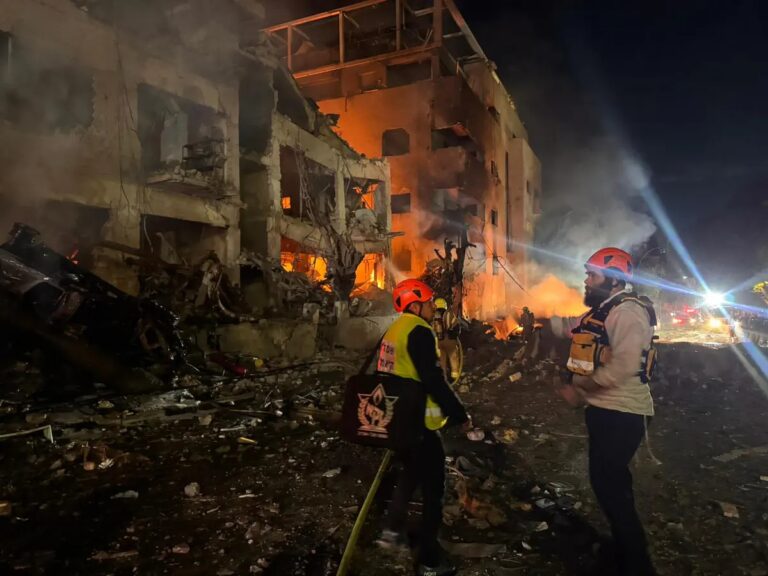U.S. Secretary of State Antony Blinken on Monday assured Lithuania and Latvia of NATO protection and American support as he made quick visits to two of the three Baltic states that are increasingly on edge as Russia presses ahead with its invasion of Ukraine.
Along with Estonia, which Blinken will visit on Tuesday, the former Soviet republics are NATO members, and the Biden administration is aiming to calm any fears they have about their security in the event Russia chooses to expand its military operations.
In the Latvian capital of Riga, Blinken said the Baltics have “formed a democratic wall that now stands against the tide of autocracy” that Russia is pushing in Europe. “The United States is more committed than ever to standing with you as our democracies rise to the challenge,” he said.
“We are bolstering our shared defense so that we and our allies are prepared,” Blinken said. He stressed that the U.S. commitment to NATO’s mutual defense pact is “sacrosanct” and that NATO and the United States were discussing the permanent basing of troops in the Baltics.
“We will defend every inch of NATO territory if it comes under attack,” he said. “No one should doubt our readiness. No one should doubt our resolve.”
Leaders in both countries expressed grave concerns about Russian President Vladimir Putin’s intentions as it relates to former Soviet bloc countries that are now allied or otherwise linked to the West.
“We have no illusions about Putin’s Russia anymore,” Latvian Foreign Minister Edgars Rinkevics said after meeting Blinken in Riga. “We don’t really see any good reason to assume that Russia might change its policy.”
Rinkevics said that the Russian invasion of Ukraine had shown the Baltic countries in particular the need to bolster air and coastal defenses and that Latvia would like its security cooperation with NATO to be “more efficient.”
“Unfortunately, the worsening security situation in the Baltic region is of great concern for all of us and around the world,” Lithuanian President Gitanas Nauseda told Blinken earlier in Vilnius. “Russia’s reckless aggression against Ukraine once again proves that it is a long-term threat to European security, the security of our alliance.”
Memories of Soviet rule are still fresh in the Baltics and since the invasion of Ukraine last month, NATO has moved quickly to boost its troop presence in its eastern flank allies while the U.S. has pledged additional support.
Blinken’s opened his Baltic tour in Vilnius, where Lithuanian support for Ukraine’s resistance to the Russian invasion was palpable as signs of solidarity with Ukrainians are evident in many businesses and on houses, public buildings and buses. He later traveled to Riga, which has been similarly festooned with blue and yellow Ukrainian flags.
Lithuania’s Nauseda said a policy of deterrence was no longer enough and that “forward defense” was now needed. He predicted that “Putin will not stop in Ukraine if he will not be stopped.”
“It is our collective duty as a nation to help all Ukrainians with all means available,” said Nauseda. “By saying all, I mean, indeed all means all, if we want to avoid the Third World War. The choice is in our hands.”
Lithuanian Foreign Minister Gabrielius Landsbergis called for a surge in assistance to Ukraine, noting that the NATO allies “are doing a lot, but we cannot stop.” He also called for an immediate halt to imports of Russian energy. “We cannot pay for oil and gas with Ukrainian blood,” he said.
Lithuania is also dealing with pressure from another large power — China — for its relationship with Taiwan, the island China regards as a renegade province. China has taken actions, including halting imports of certain products, against Lithuania for allowing Taiwan to open a de facto embassy in Vilnius.
Blinken said the Ukraine situation was relevant to Lithuania’s Taiwan situation as all countries should have the right to pursue their own foreign policies. “Every nation is free to associate with whom it chooses,” he said. “The United States continues to stand by Lithuania and every nation to choose its own path.”
Blinken arrived in the Baltics late Sunday from non-aligned Moldova, which is also warily watching the war on its doorstep, and Poland, where he visited the Polish-Ukrainian border and met with refugees from Ukraine.
After his meetings with senior Latvian officials and Israeli Foreign Minister Yair Lapid in Riga, Blinken will visit Tallinn, Estonia on Tuesday and then go on to Paris for talks with French President Emmanuel Macron.
Israeli Prime Minister Naftali Bennett met with Putin over the weekend and Macron has been in frequent contact with the Russian leader. Both Israel and France sought meetings with Blinken to discuss those interactions.
Blinken declined to discuss those meetings in detail before they have been held but said: “There is certainly no change in our message to Moscow, our message to Russia and to President Putin: End the war. End it now.”
(AP)

